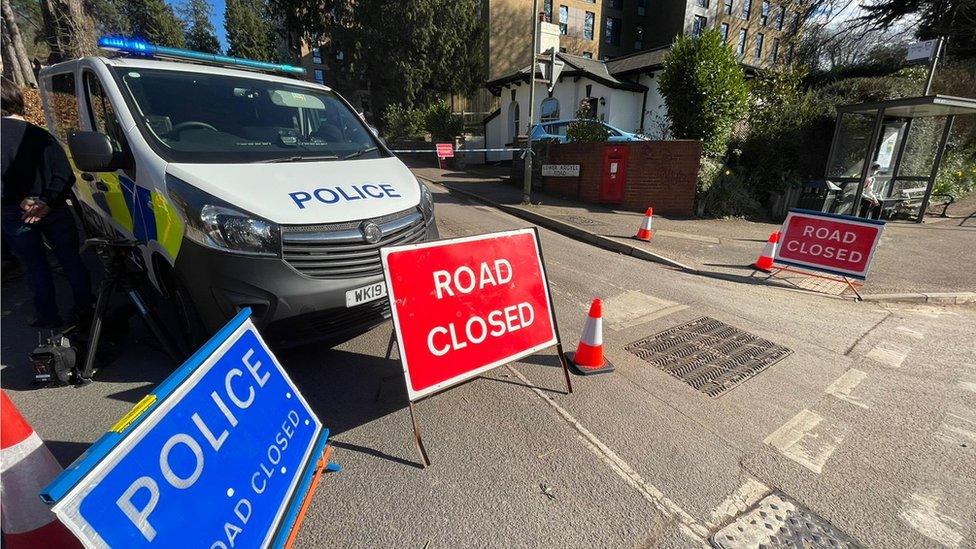Exeter WW2 bomb: Students told halls not safe for return
- Published

Birks Grange is one of two Exeter University Halls damaged in the bomb blast
Some students evacuated to allow a bomb detonation have been told their damaged accommodation will not be safe for their return "for the rest of term".
Hundreds of University of Exeter students were moved when a World War Two bomb was detonated on 27 February.
The university said fewer than 250 students would have to stay elsewhere until at least 1 April.
One student said it was "really stressful because the only place you can call home has been taken away".
In an email the university told students: "Whilst we make the necessary arrangements to be able to offer you alternative university accommodation, you will need to remain in your temporary accommodation over the weekend and into next week".
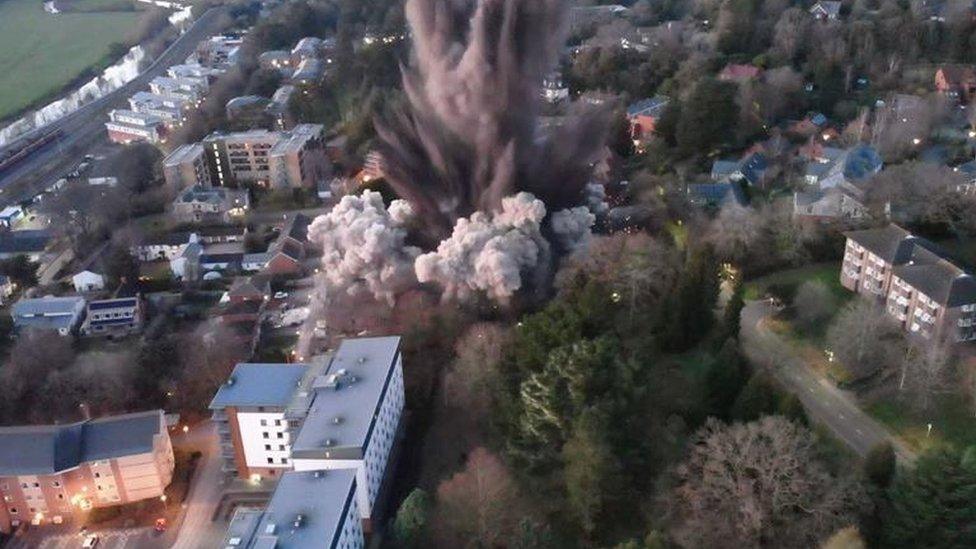
The Exeter bomb sent debris flying into nearby homes
It added that it will provide more information on Monday 8 March, and "will aim, where possible to keep you within your current households".
Detonation of the 2,200lb (1,000kg) German bomb in Exeter sent shrapnel, girders and debris flying into nearby buildings.
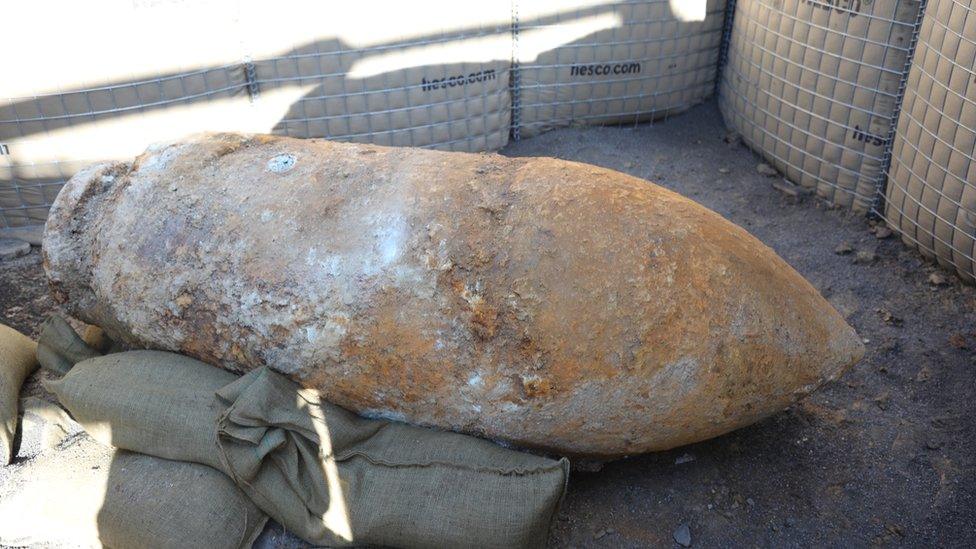
The bomb was surrounded by metal cages filled with 400 tonnes of sand to reduce the impact of the explosion
The university's vice chancellor said on Wednesday she hoped all the 1,400 evacuated students would return in the "coming days".
On Thursday, some students were told "we do not expect you to be able to return to your original university accommodation for the rest of term".
The two halls affected are Birks Grange and Clydesdale, both of which were damaged in the blast.

Birks Grange repairs continue as evacuated students wait to be told their next move
First year English student Emily Parker Humphreys, who evacuated from Birks Grange to a city hotel, said: "It's really stressful because the only place you can call home has been taken away from you.
"It's gone and you don't know when you're going to return."
What do we know about unexploded WW2 bombs?
She had also found it "hard to concentrate" on her work because of the "not knowing where you are going to be living".
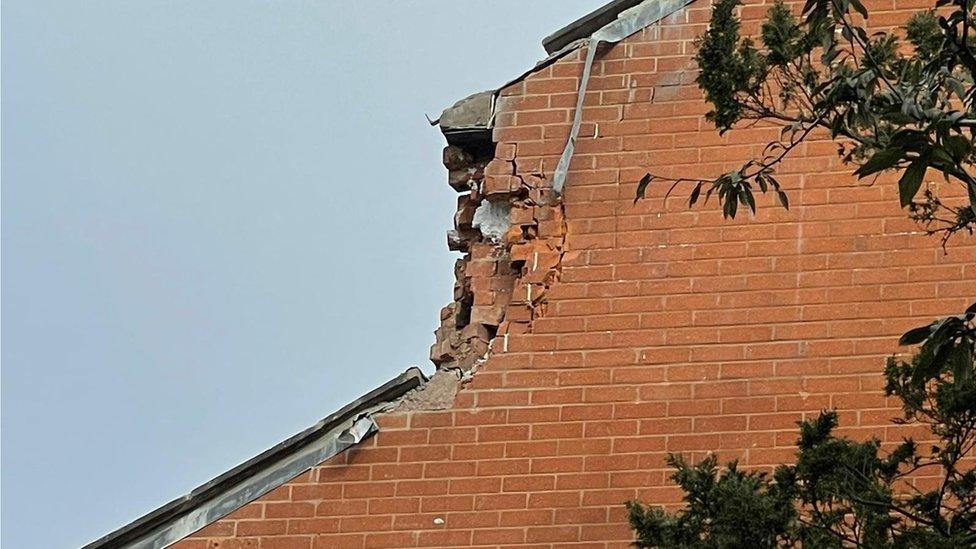
Properties nearby were damaged in the controlled explosion on Saturday
The university said the "vast majority" of the evacuated students had returned to their original accommodation.
Ian Blenkharn, university director of education and support, said it had been a "challenging time for many students" and "full support" had been offered.
He added the students were unable to return to university halls or private residences "while safety works continue".
Aerial footage of Exeter bomb exploding
Bomb disposal teams destroyed the device in a 400-tonne "box" of sand in an explosion heard up to five miles (8km) away.
Exeter was heavily attacked by German bombers in 19 raids during World War Two, which saw more than 7,000 devices dropped, particularly in May 1942 during the Baedecker Raids, external.

Follow BBC News South West on Twitter, external, Facebook, external and Instagram, external. Send your story ideas to spotlight@bbc.co.uk, external.
Related topics
- Published4 March 2021

- Published3 March 2021

- Published4 March 2021

- Published2 March 2021

- Published1 March 2021
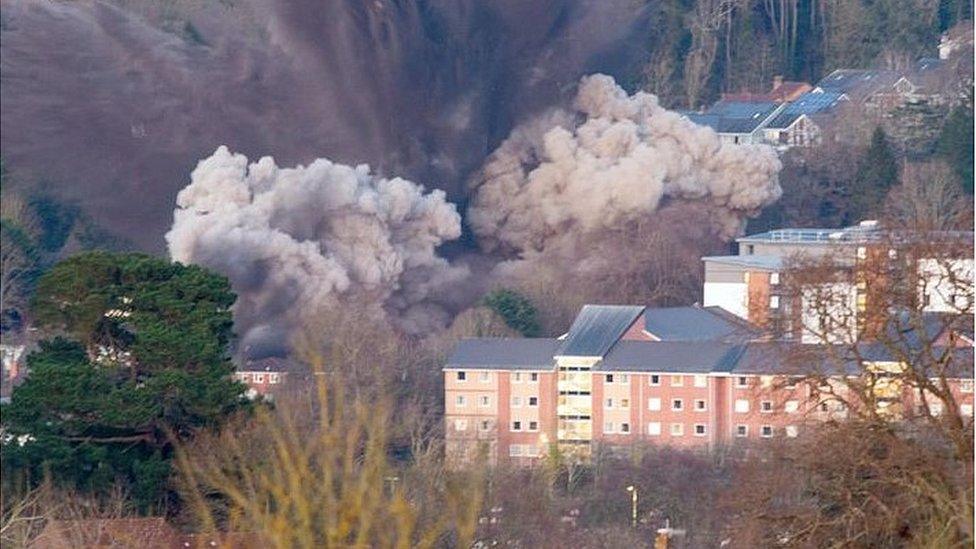
- Published28 February 2021
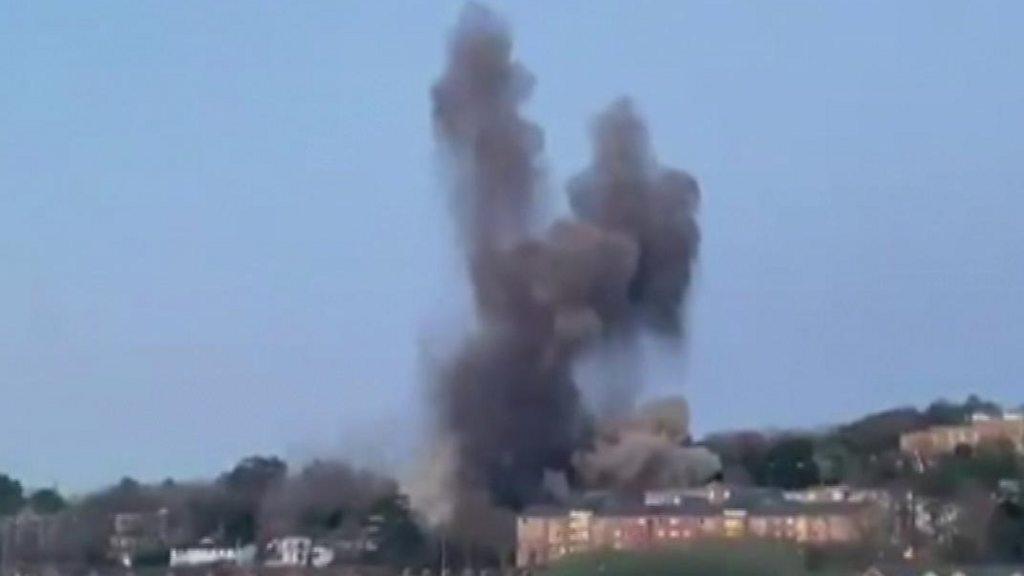
- Published27 February 2021
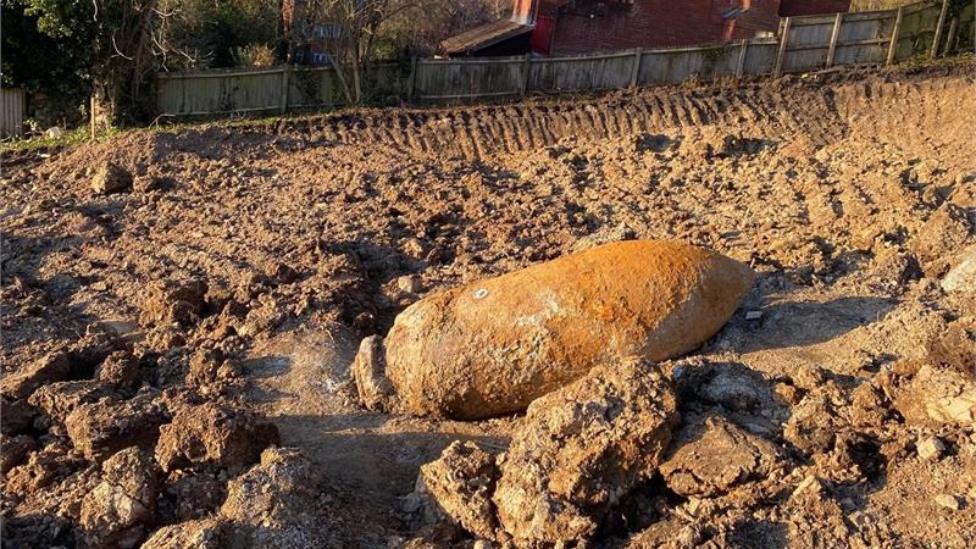
- Published26 February 2021
